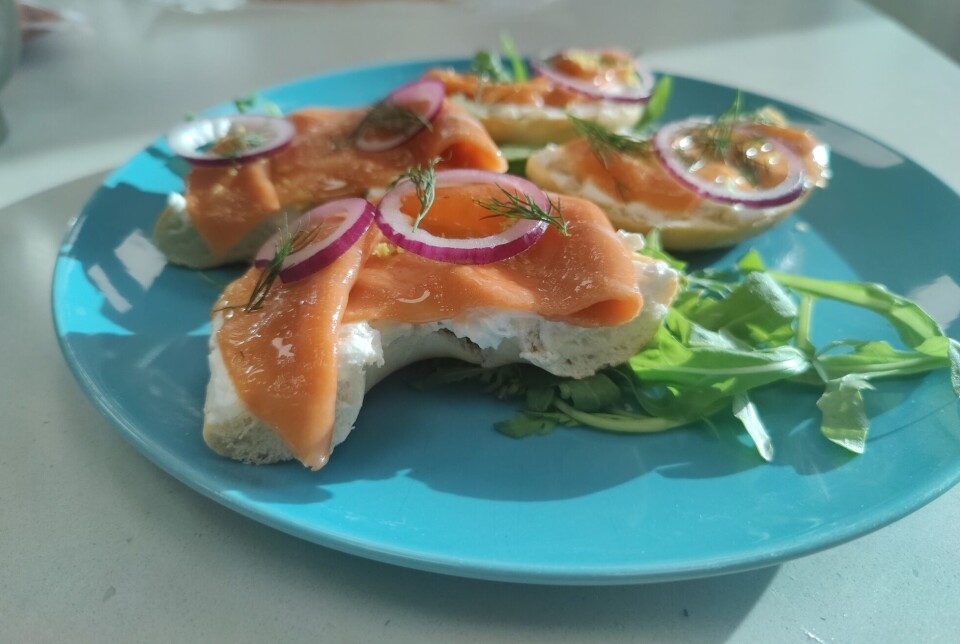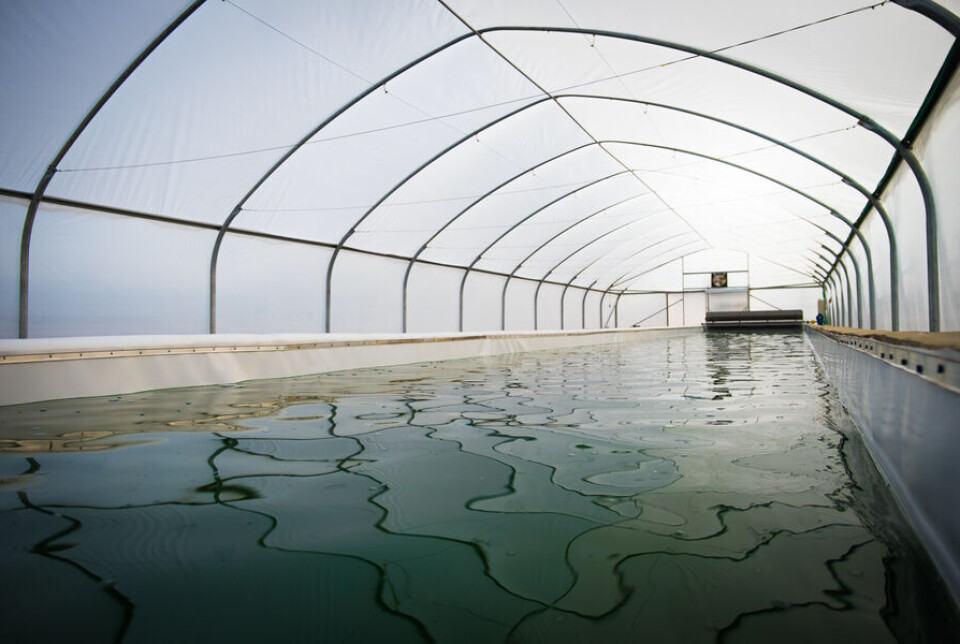
Spirulina grower opens the door to mass production of smoked salmon alternative
Texturised protein product offers simple method to create fish analogue
Smoked salmon analogues made from spirulina microalgae and plant ingredients are expected to be on sale in Europe within six months, an Israeli company behind the technology says.
SimpliiGood, owned by AlgaeCore Technologies Ltd, has begun commercial output of its texturised fresh spirulina branded Simplii Texture, and will produce hundreds of tonnes per year.
AlgaeCore began as a cultivator and enricher of food- and supplement-grade spirulina for business-to-business and business-to-consumer product makers, food service, and retailers. The company expanded into the food-tech arena, giving its raw material an added role as a texturiser. Its proprietary platform can transform fresh spirulina into a range of fish alternatives that it says are naturally rich in protein, sustainable, and boast an excellent nutritional profile.
'Salmon' from a pasta roller
“No complex and expensive equipment, such as 3D printers or extrusion equipment are required to craft our texturised protein,” said Baruch Dach, chief technology officer and co-founder of AlgaeCore.
“Our fresh, undried spirulina and a few natural ingredients are combined and passed through a machine that resembles a pasta roller to produce our spirulina-based smoked salmon in a simple process.”
At the heart of AlgaeCore’s innovation are dual intellectual property-protected technologies that enable the creation of its salmon analogue. The first is a decolorisation tech that separates the green chlorophyl component from the spirulina. Rich in antioxidants and micronutrients, this high value sidestream is redirected into supplements or as a natural food colourant. The salmon replica’s pale pink hue is expressed through the remaining carotenoid pigment naturally present in spirulina.
SimpliiGood’s second texturising technology consolidates the remaining mass into a high moisture texturised vegetable protein. It says the result is a silky, yet fibrous structure of the analogue presenting the same natural glossy finish as smoked salmon. The finished product offers consumers the same sensory experience of biting into real smoked salmon, with full nutrition plus “a welcome, spirulina boost”.
Up to 70% protein
The salmon analogue offers a concentrated natural source of whole protein (up to 70%) and nutrients, including iron and beta-carotene. The spirulina content can be tailored to meet the client’s preferences, comprising anywhere from 40% to 100% of the end product. Other ingredients include rice flour, tapioca, oil, and spices.
AlgaeCore says its solution can seamlessly plug into even the most traditional production lines, making it easy for food manufacturers to branch into alternative protein production, or to reformulate existing product lines with a nutritious spirulina upgrade.
“Our creation embodies the same look, mouthfeel, and great flavor as real salmon,” said AlgaeCore chief executive and co-founder Lior Shalev. “It is already receiving outstanding reviews and traction, demonstrating genuine market share potential. Simplii Texture has gained regulatory approval in Europe as a non-novel ingredient and completed the pilot phase. Production is up to scale and the ingredient is currently in the process of securing US-FDA approval.”

Pilot trials
Simplii Texture is currently in pilot trials with food manufacturers in Germany, Italy, Switzerland, Netherlands, and Israel. The company projects the first spirulina smoked salmon creations under private label brands will hit the retail shelves within the next six months.
AlgaeCore cultivates its spirulina in ponds housed in greenhouses situated in the southern desert region of Israel. More than 98% of the water used in the process is recycled. Spirulina also thrives on carbon, rendering it one of the most climate-friendly crops. It grows rapidly and in abundance with a harvest every 24 hours.
























































